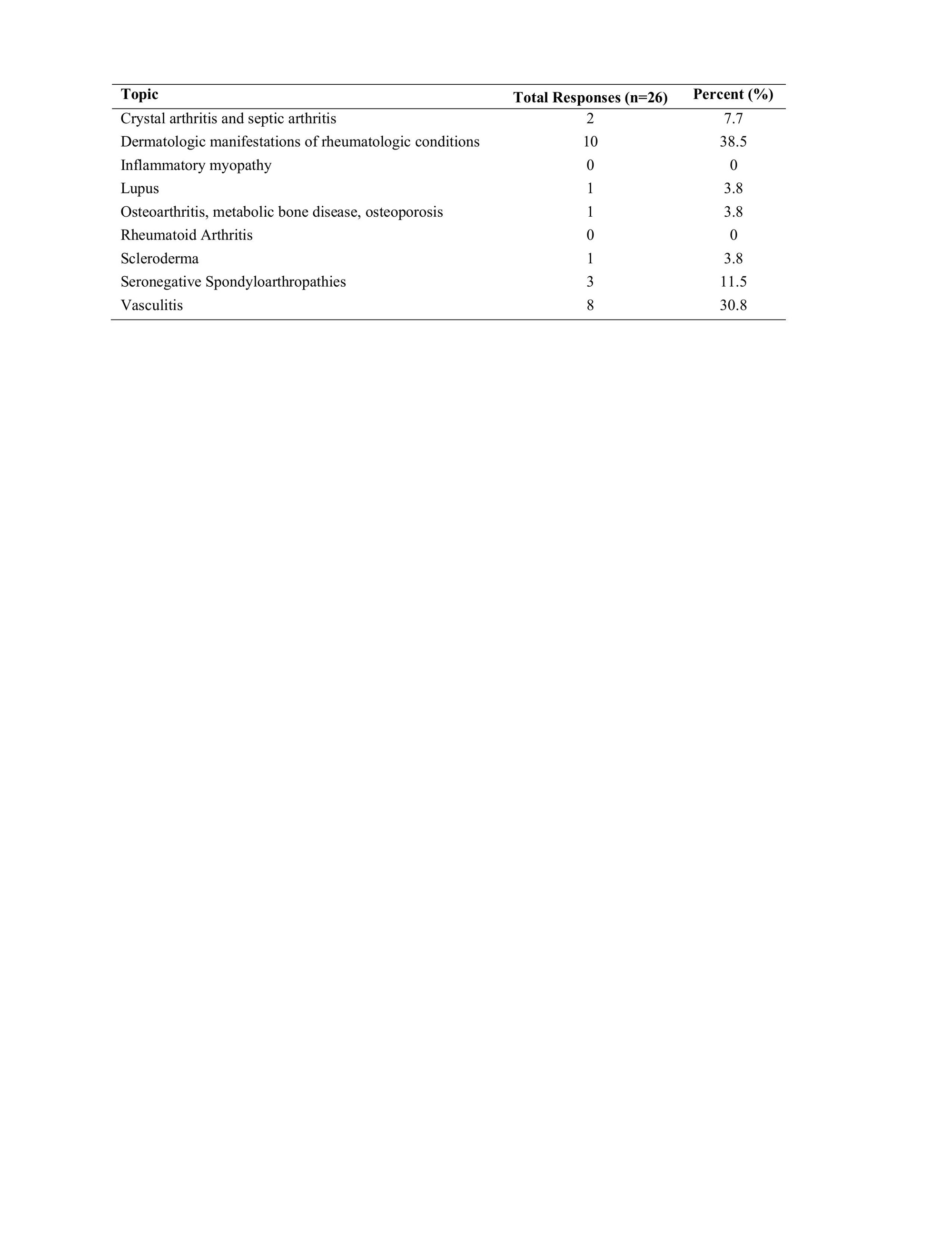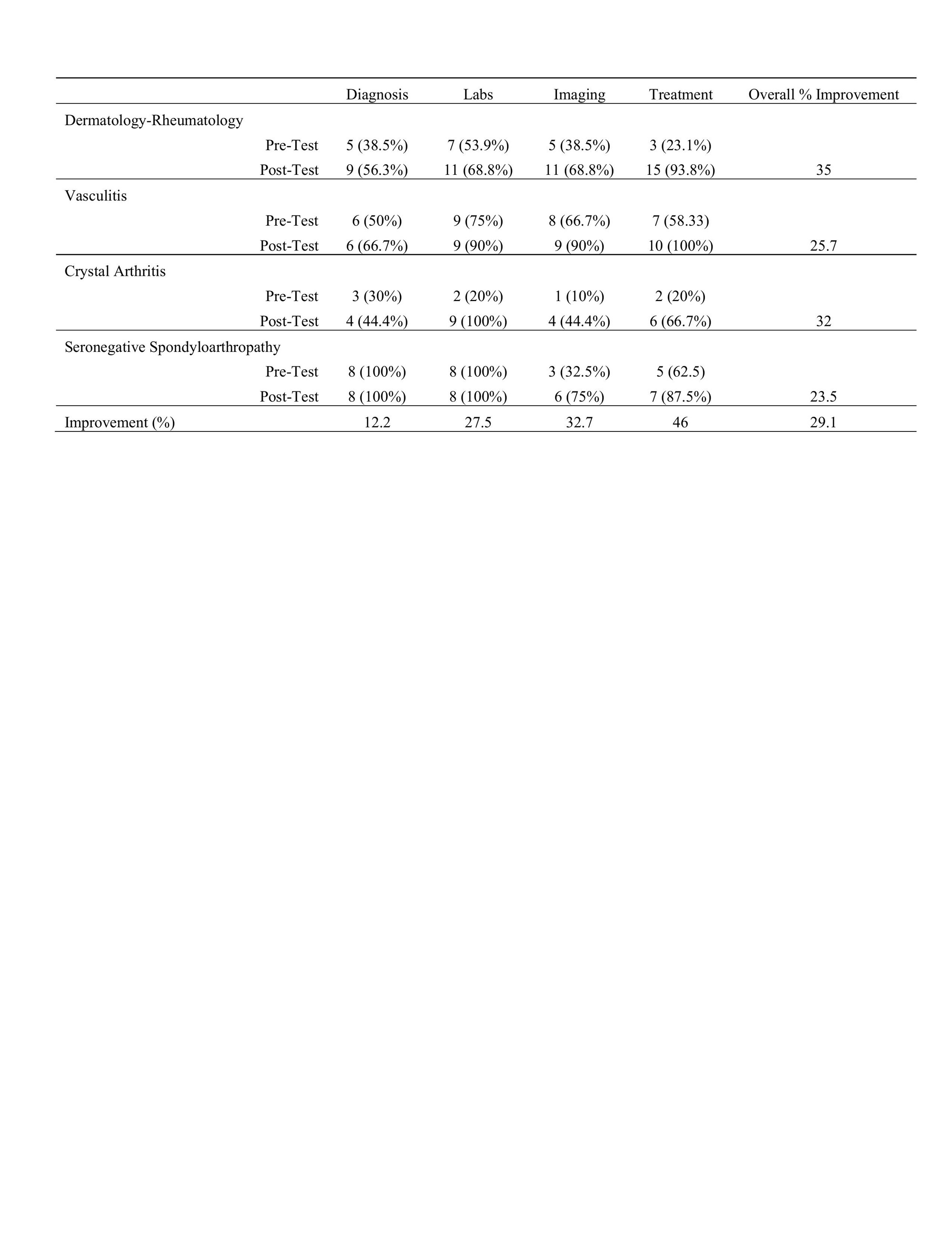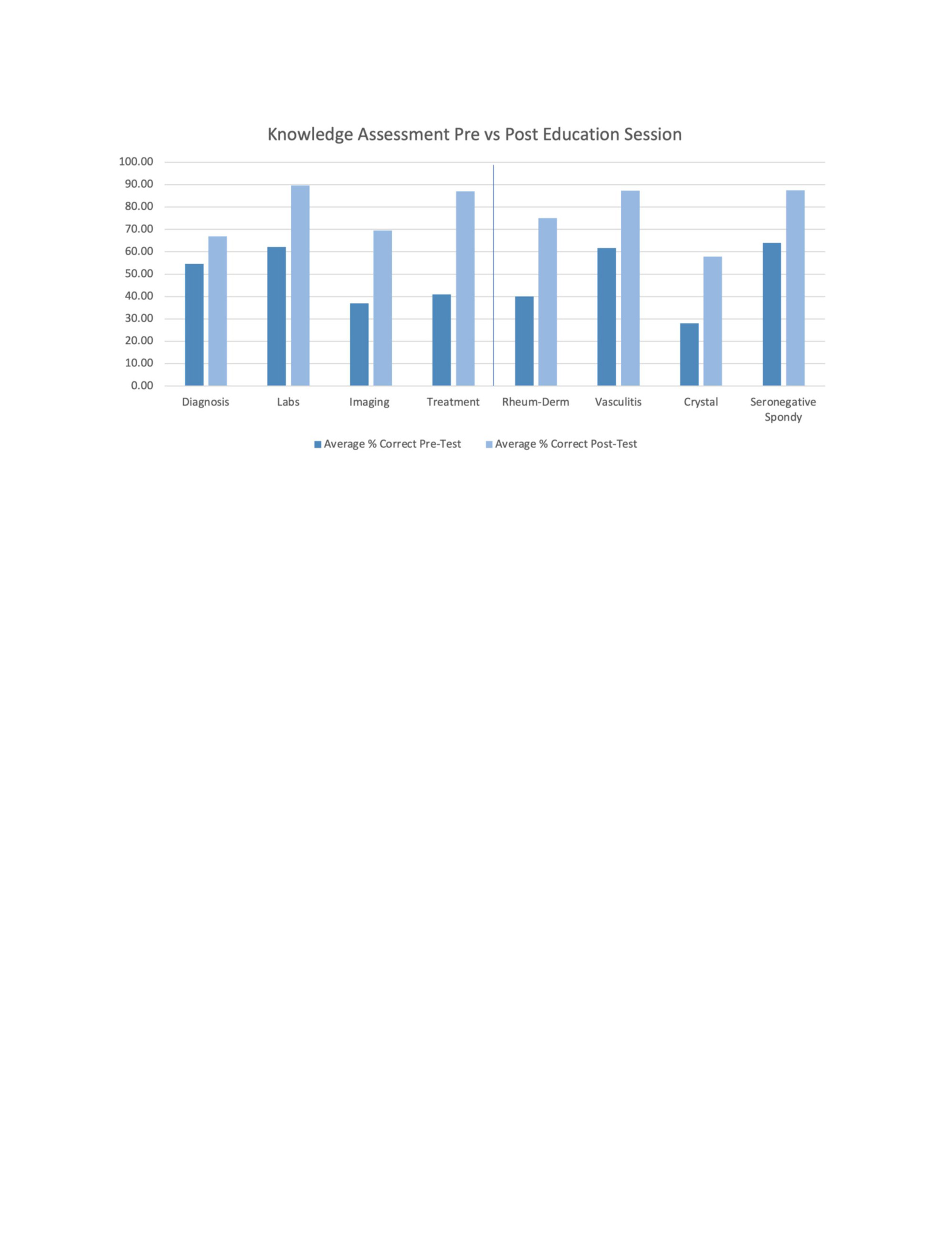Session Information
Session Type: Poster Session C
Session Time: 9:00AM-11:00AM
Background/Purpose: Rheumatology fellows have a critical role as medical educators for residents and offer unique perspectives on patient care. Fellow scholarly activity is an ACGME requirement in the practice of rheumatology. The purpose of this medical education initiative was for rheumatology fellows to create a longitudinal educational curriculum for internal medicine (IM) residents, and to assess efficacy through both objective knowledge questions and subjective feedback questions.
Methods: The rheumatology fellows at the University of Rochester Medical Center (URMC) developed a needs-assessment of rheumatology core topics from the American Board of Internal Medicine Certification Examination Blueprint. Topics were selected based on IM resident feedback from a needs-assessment. Each fellow created an interactive discussion-based didactic education session for a total of four sixty-minute sessions throughout the 2022-2023 academic year. Self-assessment surveys were completed by residents before and immediately after participation in fellow-led didactics, and percent improvement between pre and post assessments was calculated. The objective knowledge assessments included questions addressing diagnosis, laboratory findings, imaging, and treatments for each topic. A subjective questionnaire soliciting resident feedback assessed effectiveness for resident academic training, applicability to inpatient rotations and residency clinics, and impact on clinical management.
Results: Curriculum topics were selected based on needs-assessment responses from IM residents (N=26), where each resident selected one topic. The most requested topics included dermatologic manifestations of rheumatologic disease (38.5%), vasculitis (30.8%), seronegative spondyloarthropathies (11.5%), and crystal arthropathy (7.7%). After implementing the longitudinal education series, there was a 35% improvement in rheumatology-dermatology knowledge questions, 25.7% improvement in vasculitis questions, 32% improvement in crystal arthropathy questions, and 23.5% improvement in seronegative spondyloarthropathy questions. The majority of residents found the education session helpful for their academic training (96%), helpful for inpatient medicine rotations and clinic (84.4%), and felt it would change their clinical management (88.8%).
Conclusion: This innovative rheumatology fellow initiated curriculum design project was an effective way to educate resident learners on rheumatology topics, as well as for rheumatology fellows to build medical education skills. By creating a unique culture of collaboration among fellows and residents there is potential for broad positive effects and improvement in patient care. There were improvements in each disease category, which were not proportional to the percentage of students who requested these topics during the needs-assessment. This study was limited by sample size, as many residents were unable to attend the full education session. We plan to continue this education series in future years by including additional rheumatology topics, and expanding to incorporate additional IM subspecialty fellowship programs in the education sessions.
To cite this abstract in AMA style:
Kruzer K, Vertalino V, Tapia N, Long A, Blatt A, Shah U, Marston B. The Impact of Rheumatology Fellow Initiated Curriculum Design on Resident Education [abstract]. Arthritis Rheumatol. 2023; 75 (suppl 9). https://acrabstracts.org/abstract/the-impact-of-rheumatology-fellow-initiated-curriculum-design-on-resident-education/. Accessed .« Back to ACR Convergence 2023
ACR Meeting Abstracts - https://acrabstracts.org/abstract/the-impact-of-rheumatology-fellow-initiated-curriculum-design-on-resident-education/



